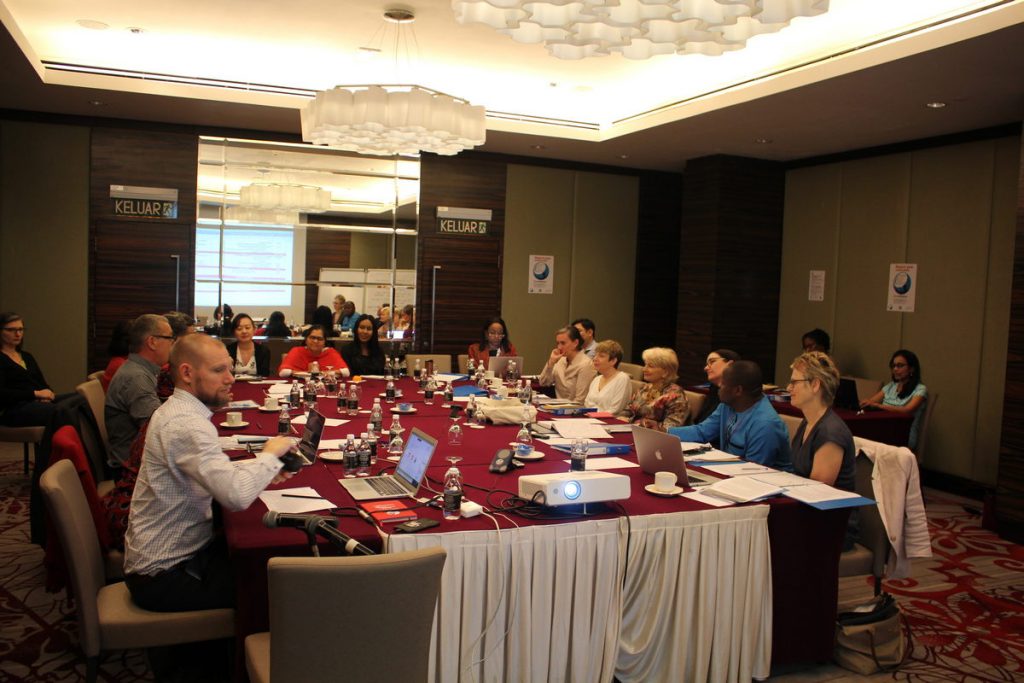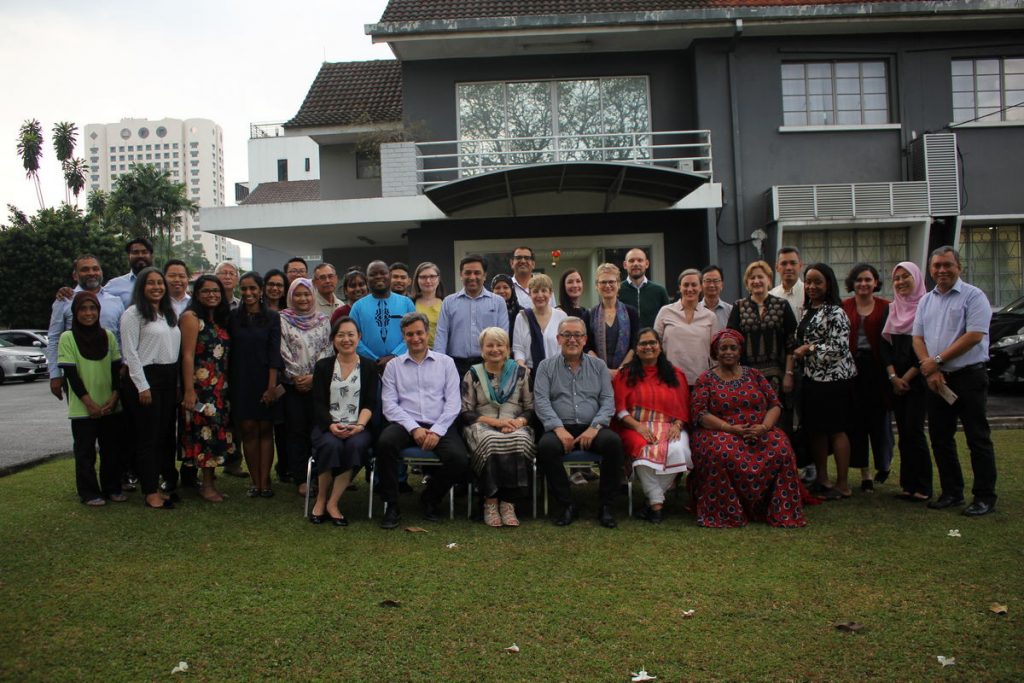Between 3 and 5 February, the IPPF Transition Committee (TC) held its first face to face meeting in the sprawling Malaysian capital, Kuala Lumpur. There were three primary agenda items for the meeting:
- Drafting terms of reference for each part of the new governance structure;
- Finalising the recruitment process for the new board; and
- Guiding the further development of the reshaped resource allocation model.
The meeting was attended, in person and virtually, by eight of the nine Transition Committee members. The Secretariat’s reform management unit and the team leaders supporting the four workstreams tasked with delivering the transition action plan also participated in the meeting.

On the first day, the Committee heard progress reports from the support team leads and discussed targets to ensure delivery within the agreed timelines. One of the areas discussed was the youth page on the website. The TC youth representative, Dyuti Krishnan, shared her hope that the page could become a safe space where young people are able to share their ideas, hopes, and actions for the reform. “We want young people to feel safe and to truly participate in the process of change,” she said. Alvaro Bermejo, the IPPF Director General, also expressed his concern, noting: “How can we ensure that the new governance structure will be more youth-focussed than the existing one? That will be a true test of our success.”
The TC then engaged in detailed and constructive discussions on the various components of the new governance structure. The broad architecture of the new body was agreed in New Delhi at the General Assembly meeting. However, the details of how each of the governance bodies and associated forums will work remains to be defined. The Governance Support Team presented a draft document, inspired by expectations defined by the General Assembly, existing IPPF practise, and comparative practice from other federations. Based on the TC’s reflections, the support team will now further refine the draft documents with the TC before sharing them with the Federation for consultation by the end of February.
On the second day, the TC addressed ongoing recruitment for the new Board. In mid-January, the reform team issued an open tender for an executive search firm to support the recruitment process [read more here]. Perrett Laver, an established international company, won the bid and participated in the meeting remotely to present a draft advert, timelines, and a process outline for the recruitment. The TC provided direction about how to proceed, and the process remains on schedule.
An advert will soon go out to the Federation and externally to find 15 people with exceptional skills, passion, and a desire to govern the Federation. Dr Sharman Stone, a TC member from Australia, made it clear that transparency and inclusion was of paramount importance. She said, “we must make sure that the advert is shared widely within the MA structures, and that it is available in all languages. We have to get the best and most inclusive board possible.” The call for applications will be open for six weeks, after which Perrett Laver will present TC members with a list of the best 50 candidates for shortlisting. Interviews will take place during the third week of April.
The last agenda point was devoted to the resource allocation model. The support team responsible for the delivery has had several meetings, and the work to develop guidelines for the new model is well underway. At the end of January, IPPF issued an external tender for a consultant to develop the formula and guidelines with a full consultation process across the Federation to ensure that all voices are heard.
Mr. Vijay Kumar (ESEAOR), the team lead, presented draft thinking about the three streams of the newly adopted resource allocation model. The TC gave detailed feedback and, importantly, approved the timelines for the new model to be implemented. All three streams will be ready for implementation by the end of 2020. To avoid any shocks, however, MAs will use the existing formula for Stream 1 in 2021, with the new formula implemented in 2022. In addition, the first 3 year-cycle for Stream 1 will be for the period 2023-25, in order to align it to the new General Assembly cycle. [Read more here]
In the final session of the meeting, the TC had a joint meeting with the IPPF Director’s Leadership Team (DLT). The session was honest and solutions-oriented and focused on the practicalities of moving from Regional Councils and REC to Regional and Youth Forums. They also discussed IPPF’s feminist principles and how these should remain central to shaping a better and stronger IPPF. In closing, the TC Chair, Mr. Andreas Prager, observed that “we must always stay true to the recommendations put to us by the General Assembly in New Delhi and the principles behind this.”

Job well done but ensure you remain truthful to the recommendations of the General Assembly as cited in the closing remarks very important.